There’s a fairly big change hiding under the metal of one of Australia’s favourite utes. The Isuzu D-Max has a new 2.2-litre engine, replacing the 1.9-litre unit, and it brings a couple of other things with it.
A bigger engine designed to be more powerful and more efficient can only be a good thing, surely, especially with Isuzu looking down the barrel of stringent emissions laws with only two models in the line-up, both diesel powered.
But is this new 2.2-litre engine any good? Isuzu’s gone to the trouble of a new gearbox and some new tech to go with it, so we check it out to see if it stacks up against the increasingly strong competition.
-
The electric ute we've been waiting for? 2025 Isuzu D-Max EV debuts with full-time 4WD and 1000kg payload to rival Ford Ranger PHEV and Toyota HiLux
-
Kia Tasman's next move exposed: The 2026 Kia Tasman ute’s next step against the Ford Ranger, BYD Shark 6 and Toyota HiLux to be hybrid power
-
Isuzu D-Max LS-U+ vs Mitsubishi Triton GLS Dual Cab 2025 comparison review
Isuzu D-MAX 2026: SX 2.2L
| Engine Type | |
|---|---|
| Fuel Type | |
| Fuel Efficiency | |
| Seating | 0 |
| Price From | $36,200 |
Price and features – Does it represent good value for the price? What features does it come with?
7 / 10
Pricing is up across the board for D-Max (and its MU-X sibling) regardless of drivetrain, but we’ll stick to the 2.2-litre variants here to stay on track.
Most of the lower-level D-Max variants are $1500 more than the previous equivalent, and with the manual gearbox dropped, the cheapest grade is the 4x2 single-cab chassis SX with a 2.2L engine at $36,200 before on-roads.
You can get the SX in crew-cab with a chassis or ute back in either 4x2 or 4x4 with a 2.2L engine, which is also available in the LSM X-Rider 4x4.
That one will set you back $59,500, which is still far from the most expensive D-Max around. That’s still the Blade, with a 3.0-litre engine and 4x4 only, but it’s now $80,900.
Back to the 2.2s, and the SX grade comes with the basics. Cloth upholstery, polyurethane steering wheel and gear selector, vinyl flooring and even halogen lights.
There’s basic air-conditioning, but it does have a HEPA filter, and rear vents for crew-cab models, plus there’s wireless Apple CarPlay and Android Auto, auto wipers, and USB-C power ports as well as a USB-A port.
The central multimedia touchscreen is 8.0 inches, but the driver display is a little 4.2-inch unit between physical dials.
Stepping up to the LSM X-Rider brings with it auto-levelling LED headlights and LED daytime running lights, black styling trim, nicer cloth trim upholstery and gloss black 17-inch alloy wheels.
The rest of the D-Max line-up is 3.0-litre-only, and remains as it was before.
Design – Is there anything interesting about its design?
8 / 10
The look of the D-Max depends on the grade you end up with, but the 2.2-litre SX and X-Rider variants down the lower end of the model-run are still pretty standard-looking utes. Inside and out.
You get fairly rugged styling that fits in for both work and play, and the interior is functional, if getting a little outdated.
The black trim (and extra features) that comes with the LSM X-Rider as opposed to the SX is worth it if you’re keen to get a 2.2-litre-powered D-Max for the family rather than one for a fleet as it just elevates things slightly.
Inside, it also means nicer cloth, and not having the vinyl flooring looks a little less ‘farm ute’.

Practicality – How practical is its space and tech inside?
7 / 10
The D-Max remains straight-forward inside, given nothing has changed with the update aside from the 2.2-litre engine and the addition of stop-start - there’s a button for that now.
The interior and usability of the D-Max, especially in the lower-end variants where the 2.2L engine is available, is focused on the basics.
Tech remains at a relative entry point, where the 8.0-inch screen and its software feel outdated but do everything you need. Plus of course there’s the phone mirroring workaround.
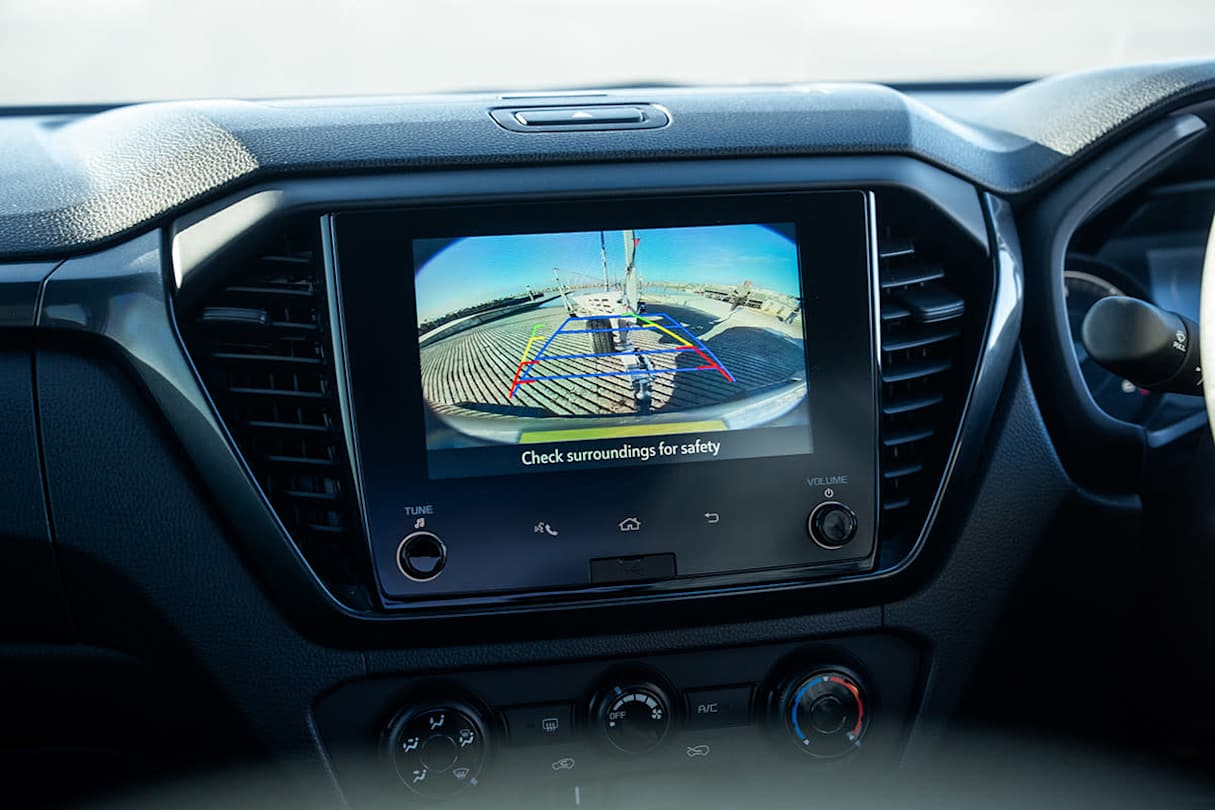
The D-Max is comfortable and spacious enough, there’s also physical buttons for everything including media and climate settings, and adjustability in terms of the seating position means not needing to reach.
In dual-cab versions, there’s enough space for an adult to sit in the second row behind another adult, so the D-Max also holds its own as a family hauler. Tick.
Importantly, Isuzu is now able to claim a 3500kg braked towing capacity across the full D-Max range thanks to the new 2.2-litre engine.
Under the bonnet – What are the key stats for its engine and transmission?
8 / 10
The new 2.2-litre turbo-diesel four-cylinder comes with 120kW and 400Nm, that’s 10kW and 50Nm more than before. Isuzu also says there’s 60 per cent more torque ready from near-idle at 1000rpm.
An eight-speed auto replaces the six-speed, but the brand has also culled the manual options that remained in the line-up.
As ever, that sends power and torque to a part-time 4WD system capable of 2H, 4H and 4L with a rear diff-lock.
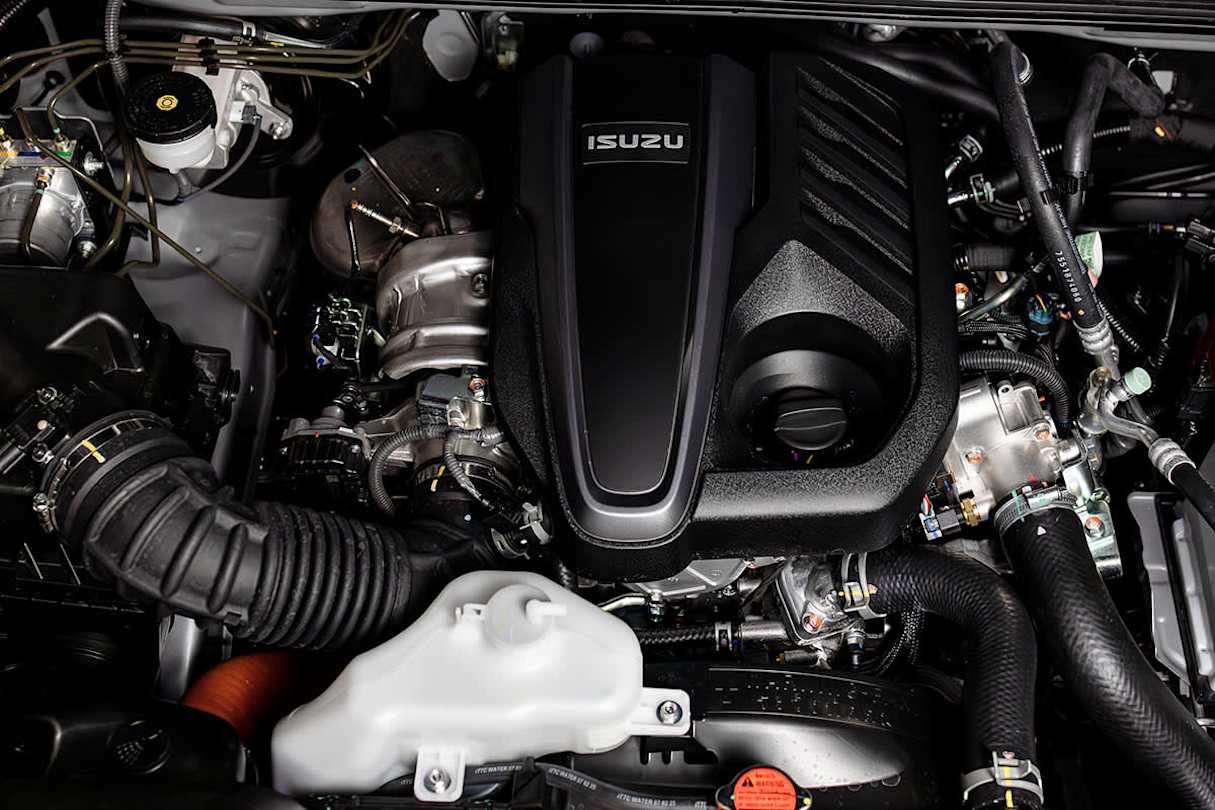
Efficiency – What is its fuel consumption? What is its driving range?
8 / 10
The biggest advantage for the new drivetrain from Isuzu’s perspective is that it’s more fuel efficient.
The old engine’s 6.9 litres per 100km become 6.6L/100km in the new engine, in part thanks to a new stop-start system. That system is also now on the 3.0-litre engine, where 8.0L per 100km drops to 7.1L.
With its 76L diesel tank capacity, the D-Max should theoretically be able to travel more than 1000km on a single fill, although that comes down to a lot of variables - that 6.6L figure was achieved in almost lab-like conditions.
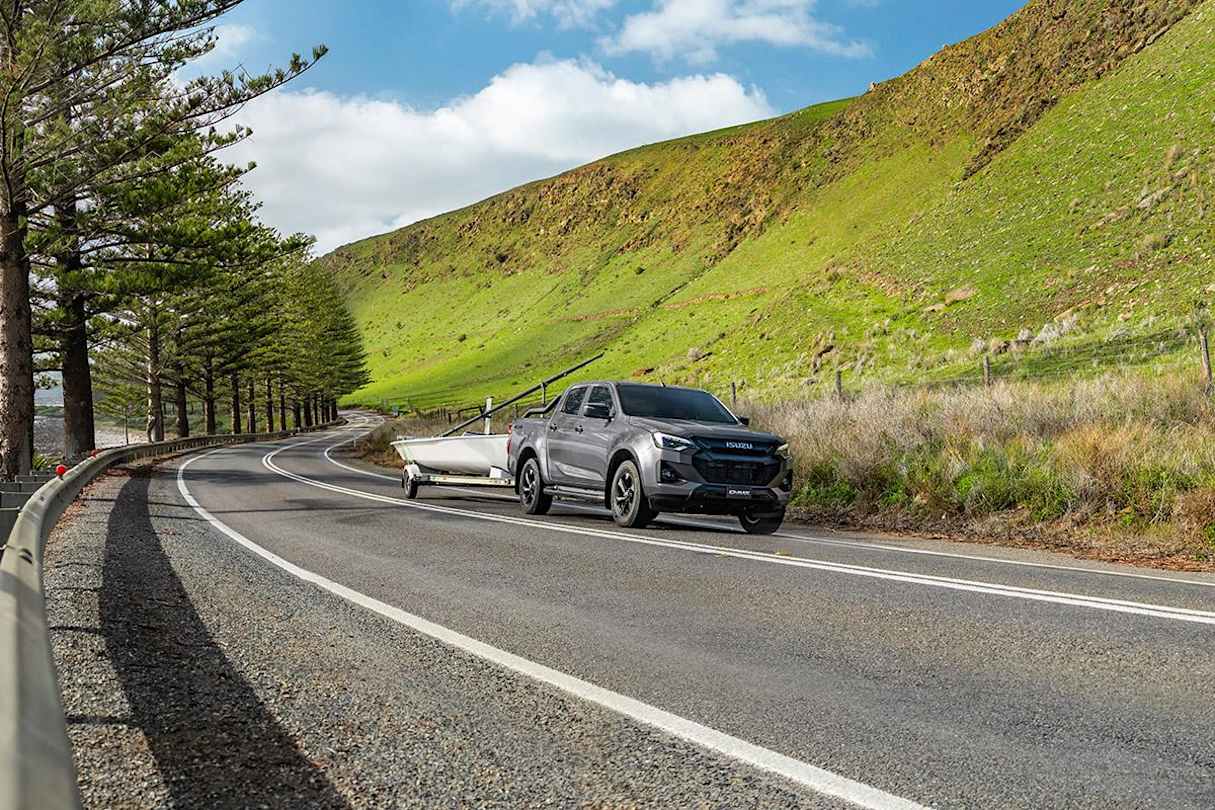
Driving – What's it like to drive?
8 / 10
Let’s start with the most important part of the updated D-Max. The new 2.2L is smooth.
It feels so much more refined physically, but it's also quieter. Paired with the new eight speed, it makes the D-Max a much more likeable ute than it was with the rattly 1.9L.
At the launch, Isuzu had a bunch of MU-Xs to drive (keep an eye on a review coming soon), and the new drivetrain actually suits that big family SUV down to a tee.
The power and efficiency changes are second to how much it changes the characteristics of the thing.
If anything, the D-Max sits in a slightly higher gear than necessary, probably to try and eke as much out of the diesel dual-cab as possible in terms of fuel efficiency, but put your foot down and a more appropriate gear is close-by, and without much fuss.
There's also a relatively good stop-start system. It's not seamless but it's better than some. You take your foot off the brake and the engine rattles back to life, rather than waiting for you to put your foot back down.
The rest of the D-Max’s behaviour is pretty standard ute stuff, as it was before.
The steering is on the light side, but accurate enough even though it has a slightly doughy spot dead-straight. It’s not anything you wouldn’t expect from a ute.
Similarly, the brakes are a bit spongy but predictable, and once you’re used to where the ‘bite’ point is it’s easy to live with.
The suspension is a bit busy, but easy to keep on top of and doesn’t jostle you around.
Warranty & Safety Rating
Safety – What safety equipment is fitted? What is its safety rating?
8 / 10
Isuzu has done well to include pretty much the full range of safety features across all its variants, with the SX only missing out on rear parking sensors - it still has a camera though, obviously.
Key features like rear cross-traffic alert with braking and adaptive cruise control are standard, plus the D-Max achieved a five star crash safety rating from ANCAP, even though that was under slightly easier testing back in 2020.
The biggest (but only) gripe on-test with the D-Max’s safety gear was its lane-keep during adaptive cruise. There seemed to be a need for the ute to sit close to either the centre line or shoulder during cornering, which led to some discomfort on fast country roads.
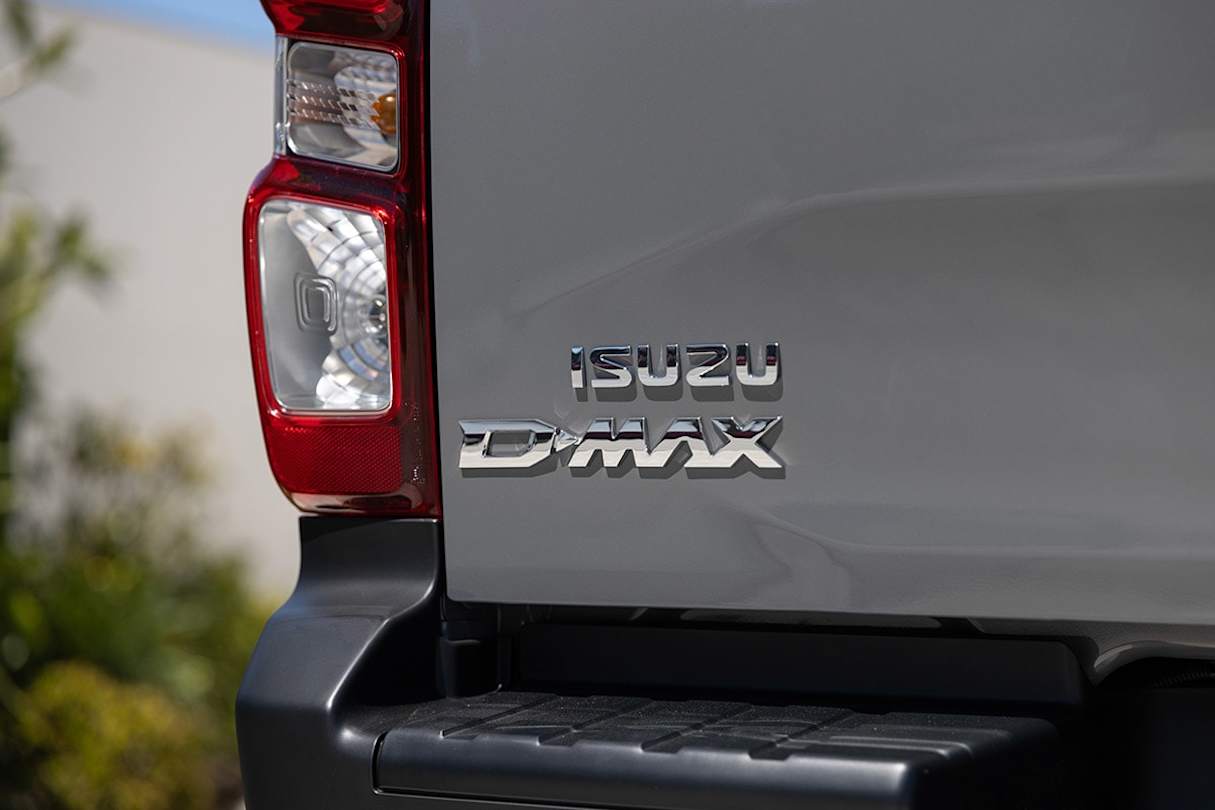
Ownership – What warranty is offered? What are its service intervals? What are its running costs?
7 / 10
Isuzu’s six-year/150,000km warranty covers the D-Max, which could do without the limited distance, especially for a workhorse.
There’s also five years of flat-rate servicing every 12 months or 15,000km, costing $469 each time.
That’s gone up about $20 per visit since the update, with total cost over the five years at $2345.
There are 164 Isuzu dealers across the country, so finding somewhere to service shouldn’t be a challenge.
Verdict
The new engine makes the D-Max a much more likeable ute than it already was, which is high praise.
It’s smoother and quieter and makes for a more pleasant drive. The added efficiency is a bonus both for your wallet and Isuzu’s emissions credits.
The 3.0-litre engine will probably remain the favourite, but anyone who test drives a 2.2L might even be tempted to opt for the smaller unit. Isuzu sure hopes so.
Note: CarsGuide attended this event as a guest of the manufacturer, with travel, accommodation and meals provided.
Pricing Guides

Range and Specs
| Vehicle | Specs | Price* |
|---|---|---|
| Sx (4X2) High-Ride | 2.2L, Diesel, 8 SPEED AUTOMATIC SEQUENTIAL | $36,200 |
| Sx (4X4) | 3.0L, Diesel, 6 SPEED AUTO SEQ SPORTS MODE | $46,200 |






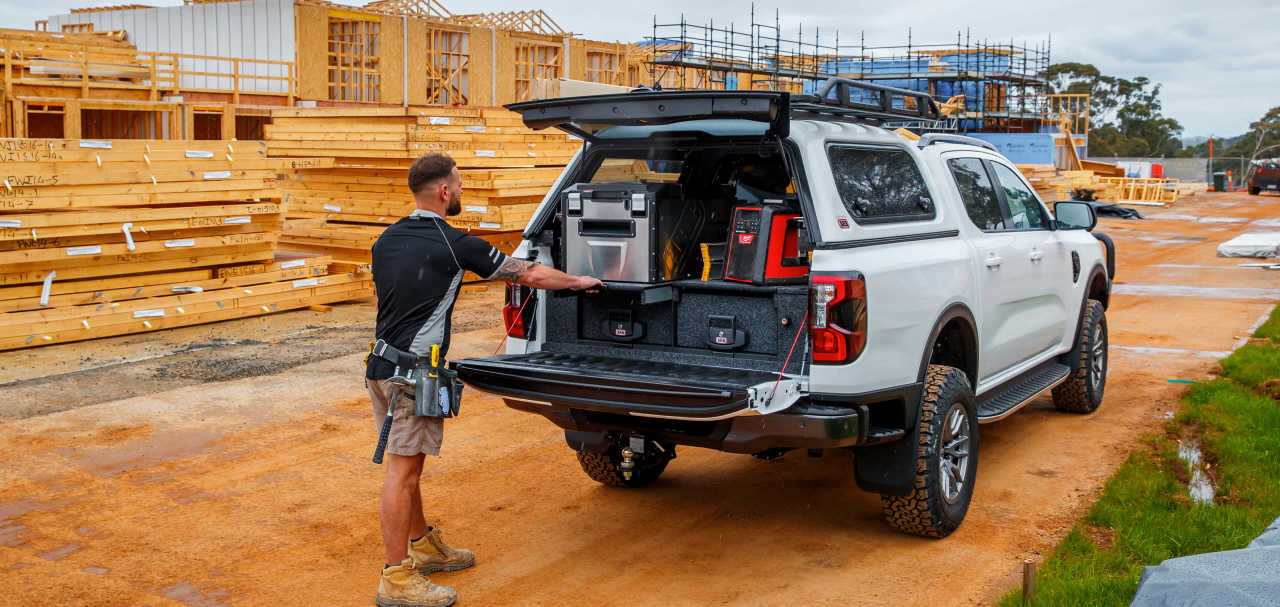
.jpg)
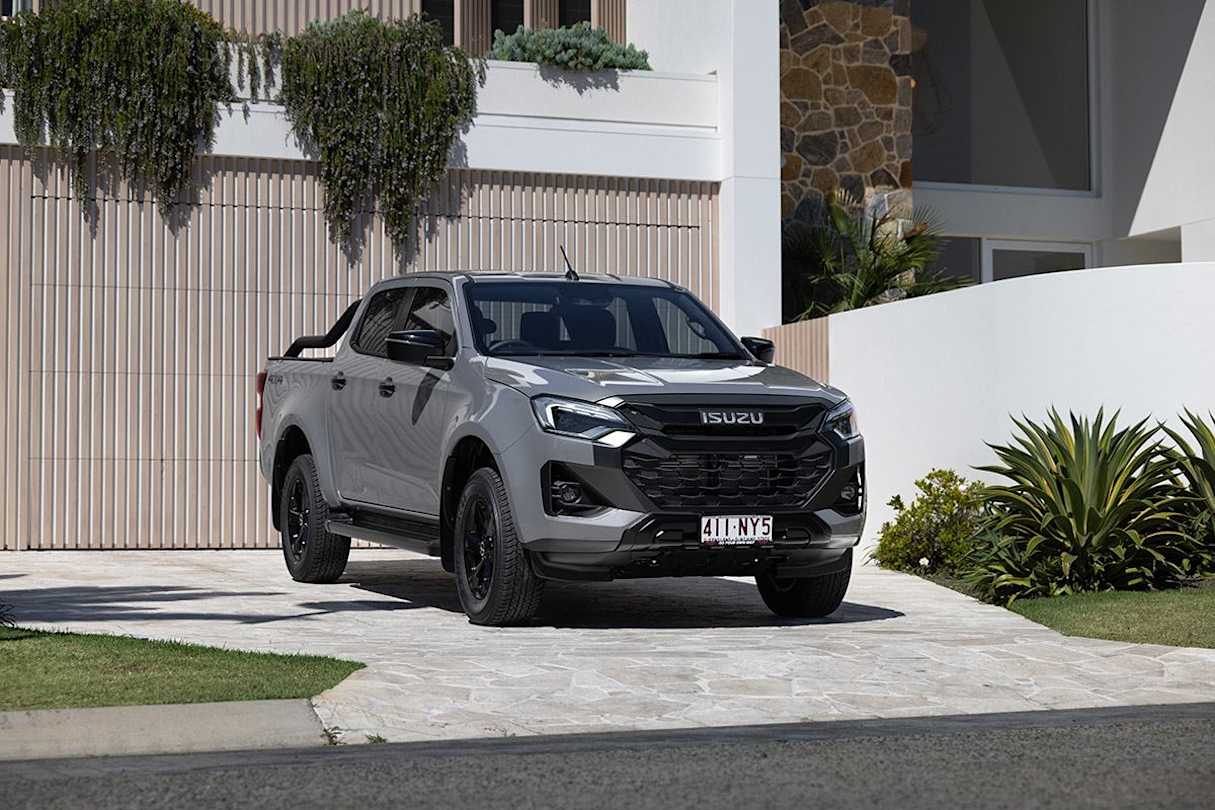
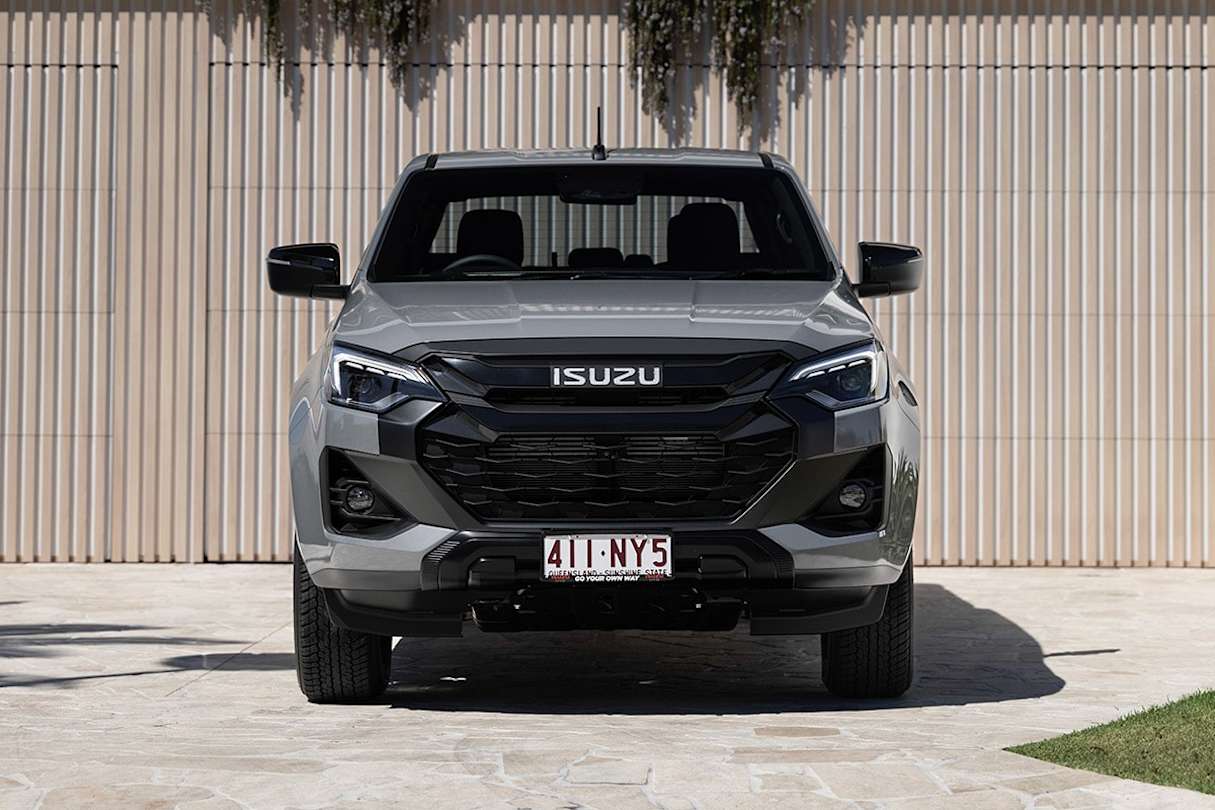

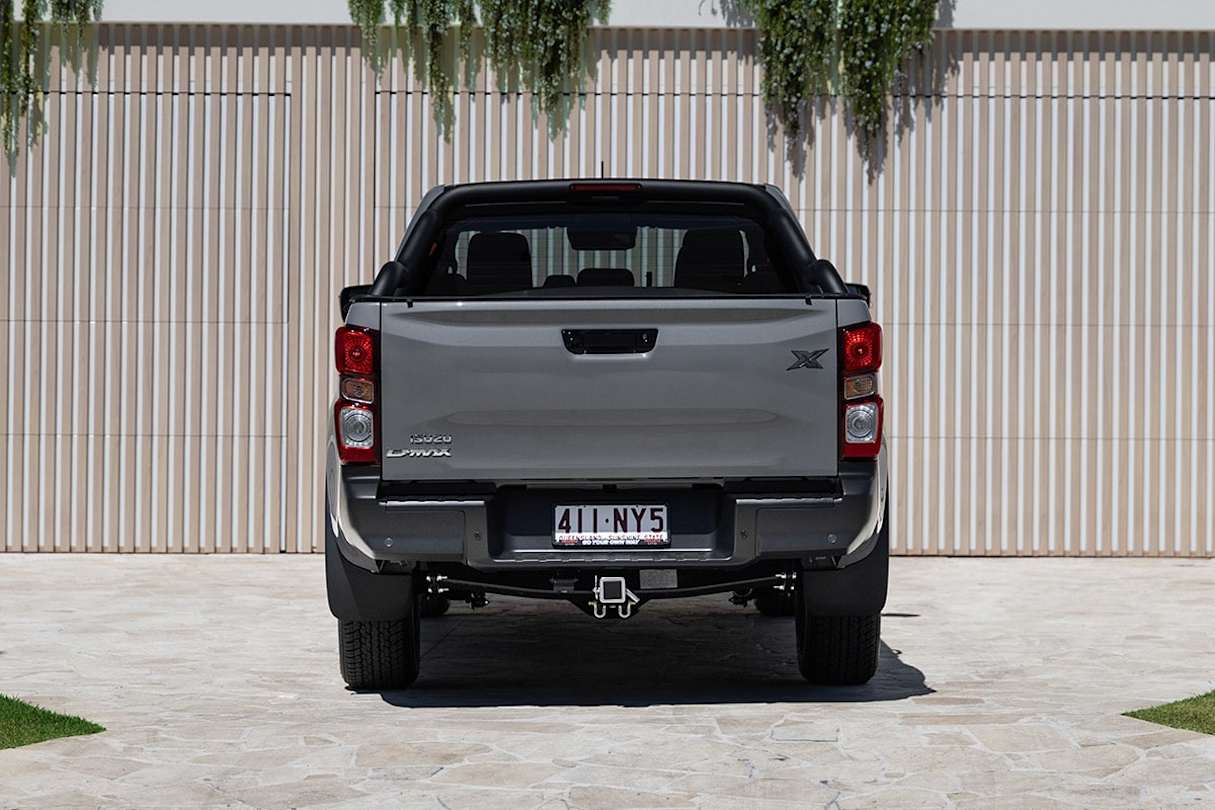
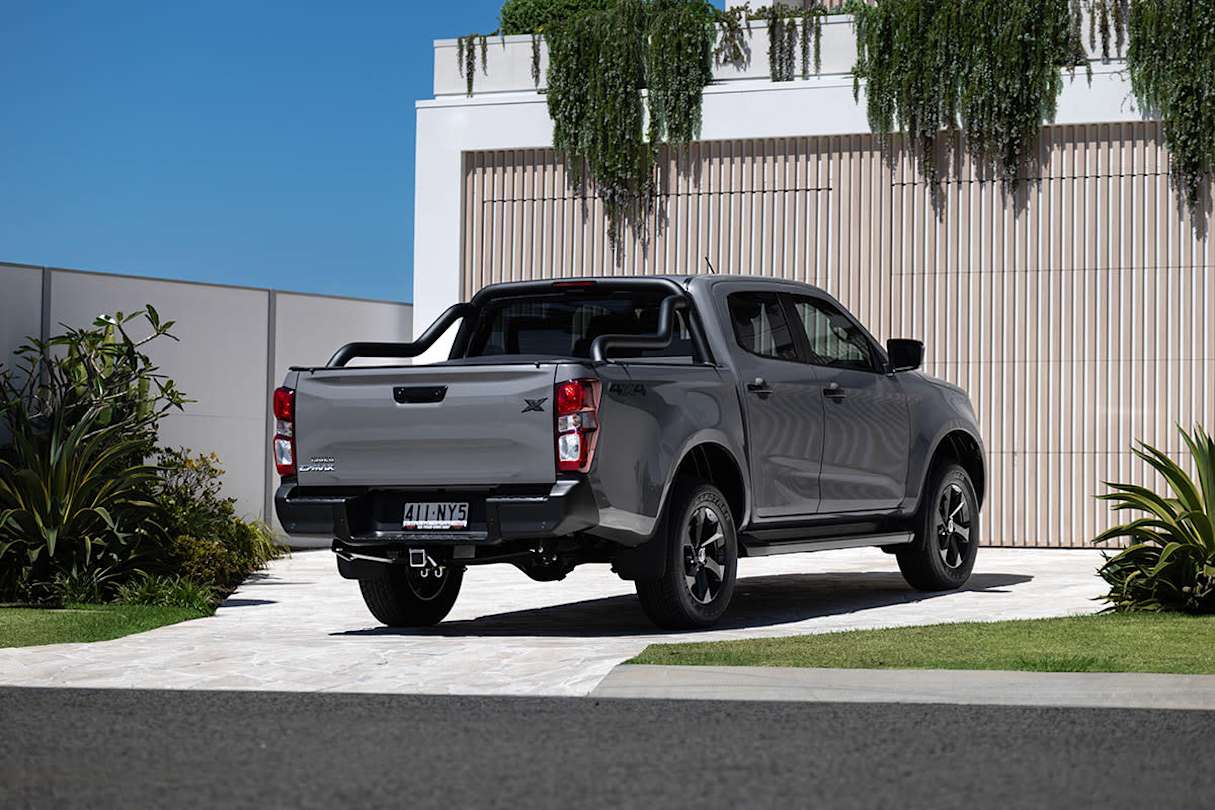
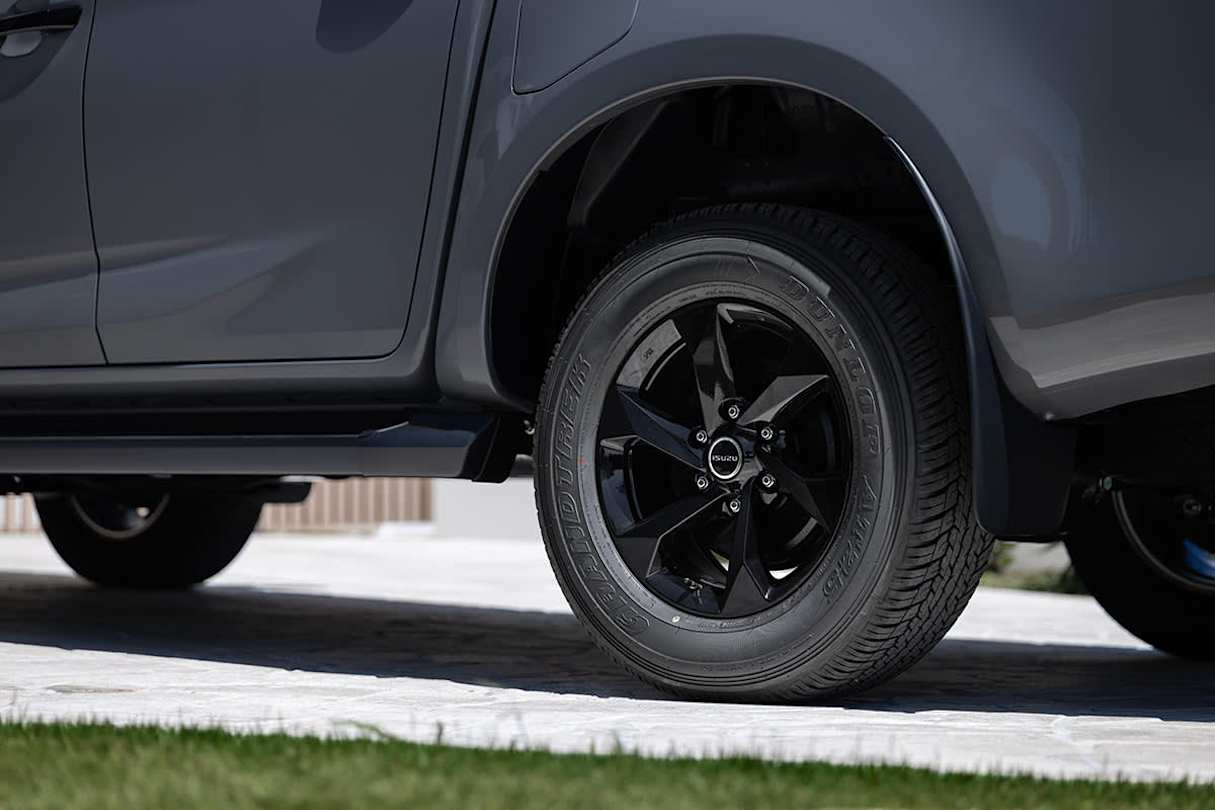
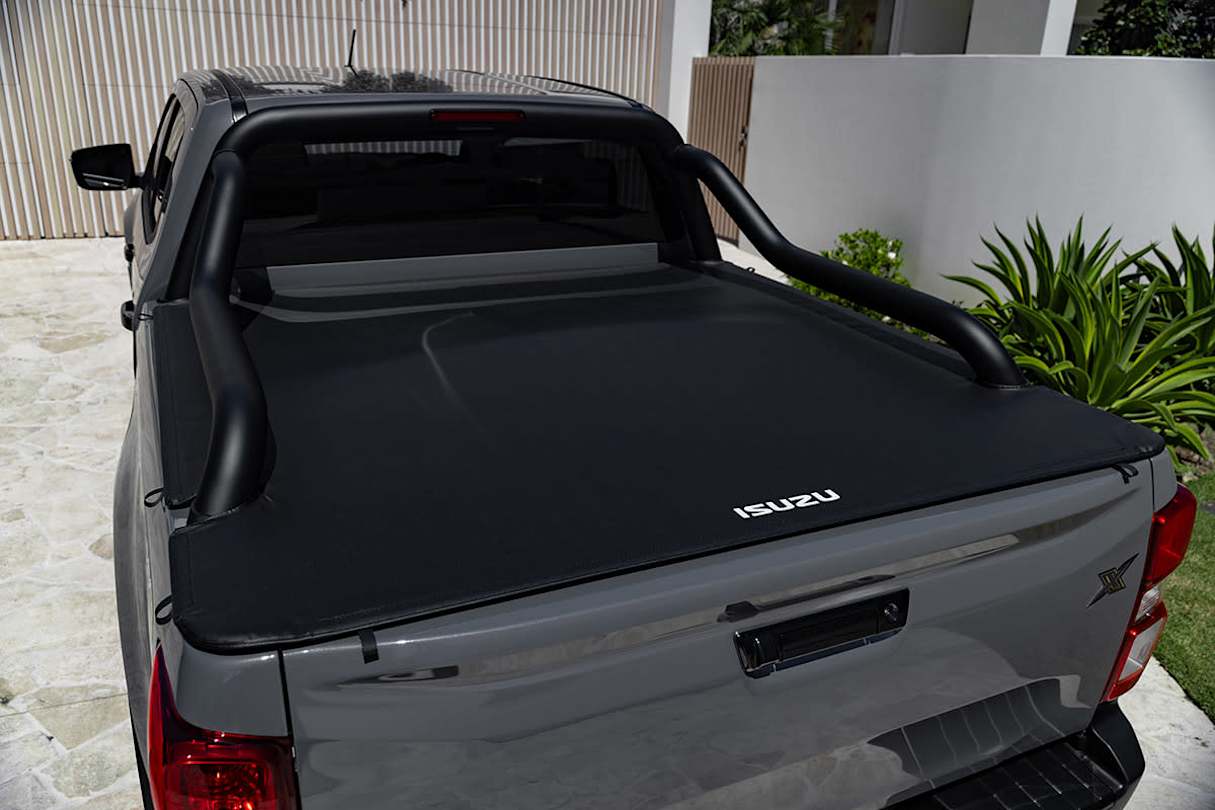
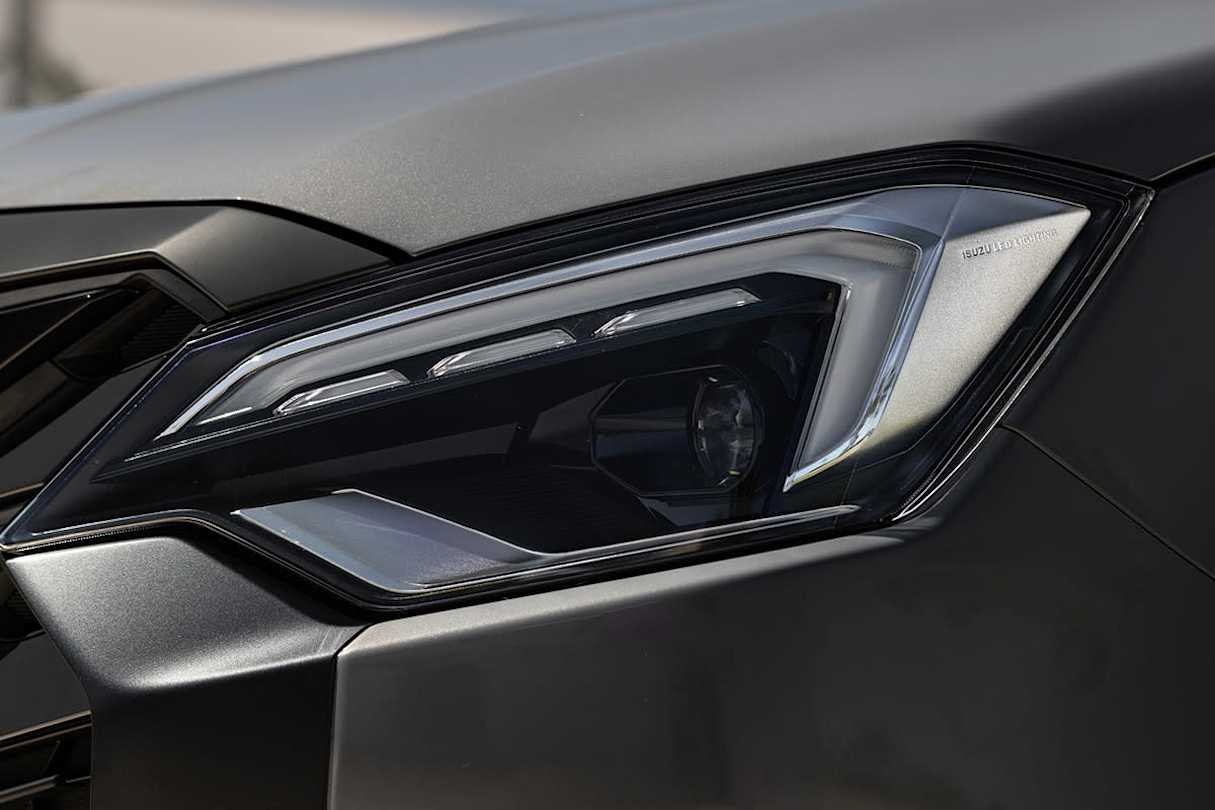








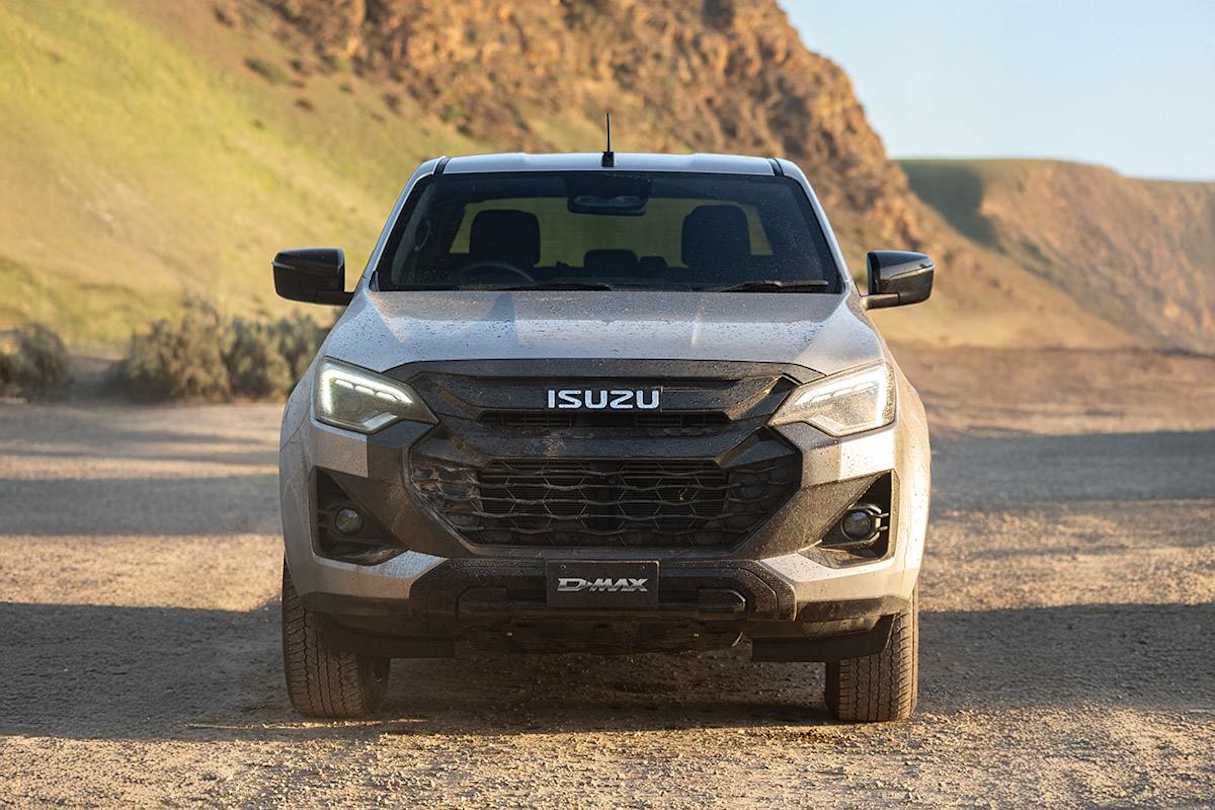
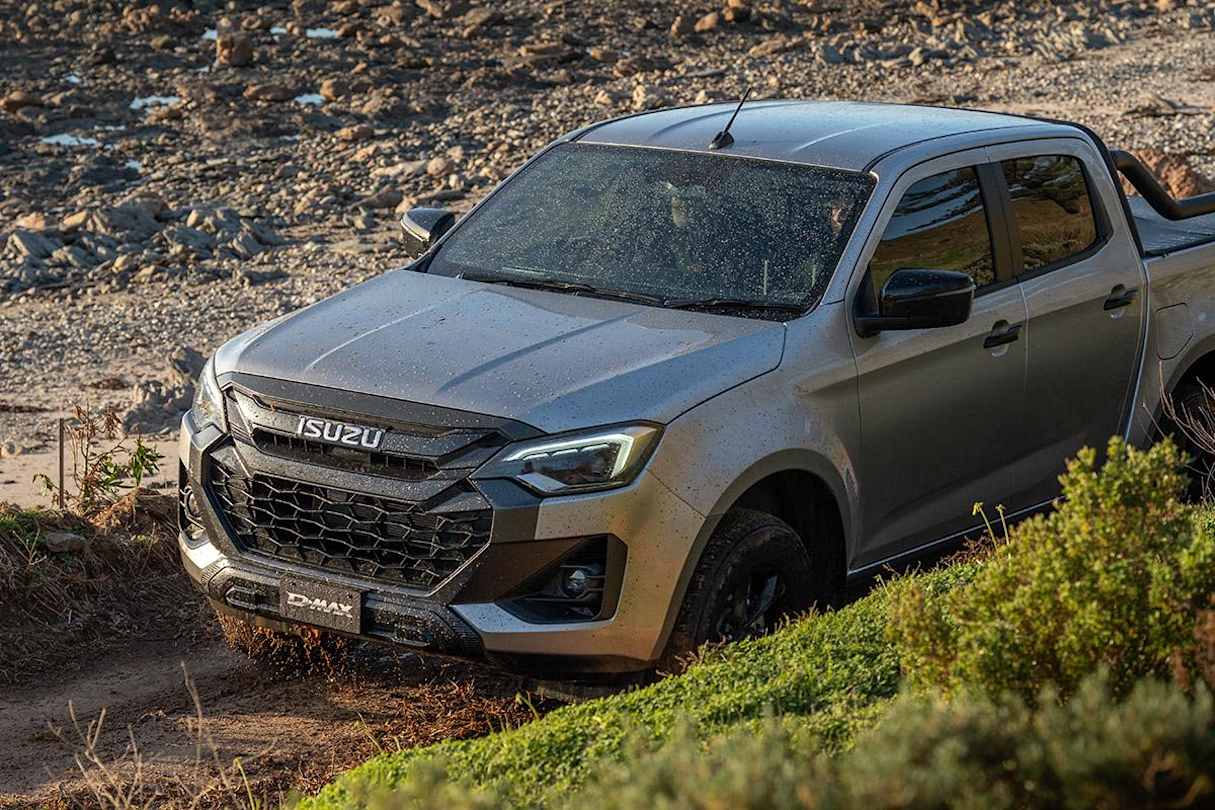
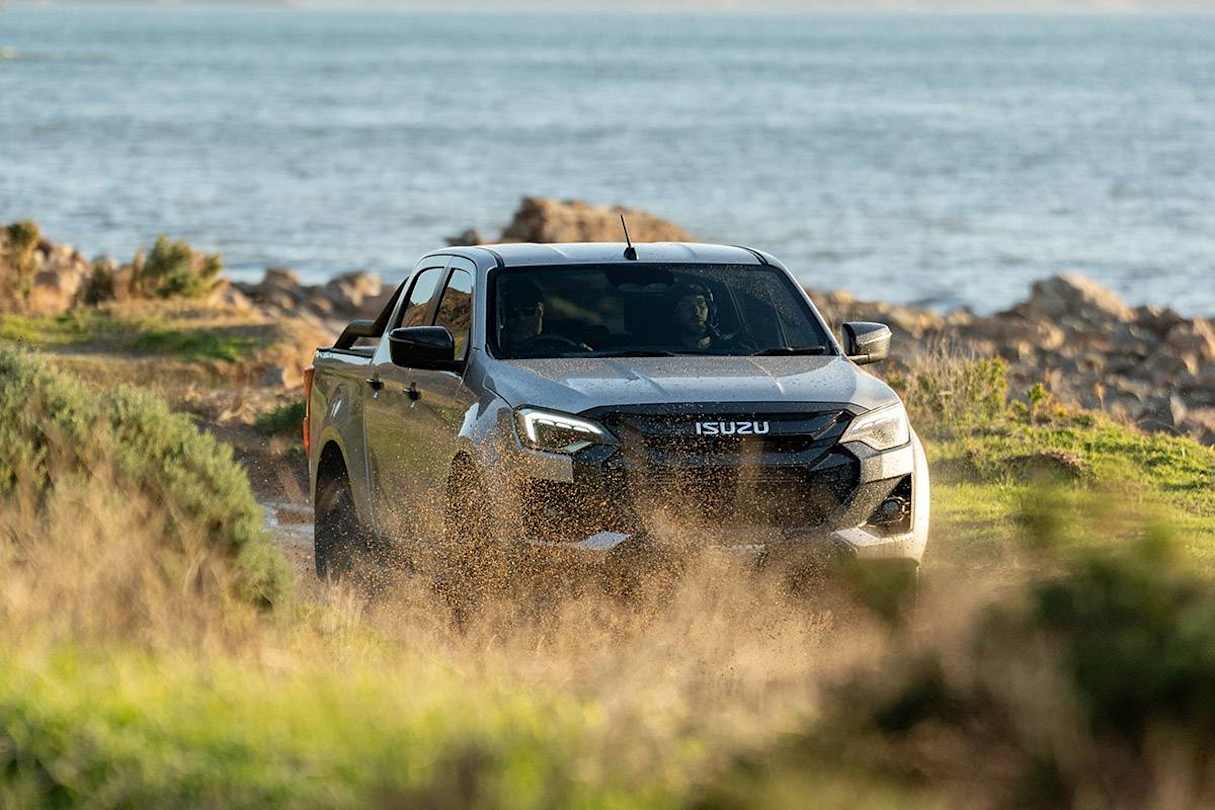
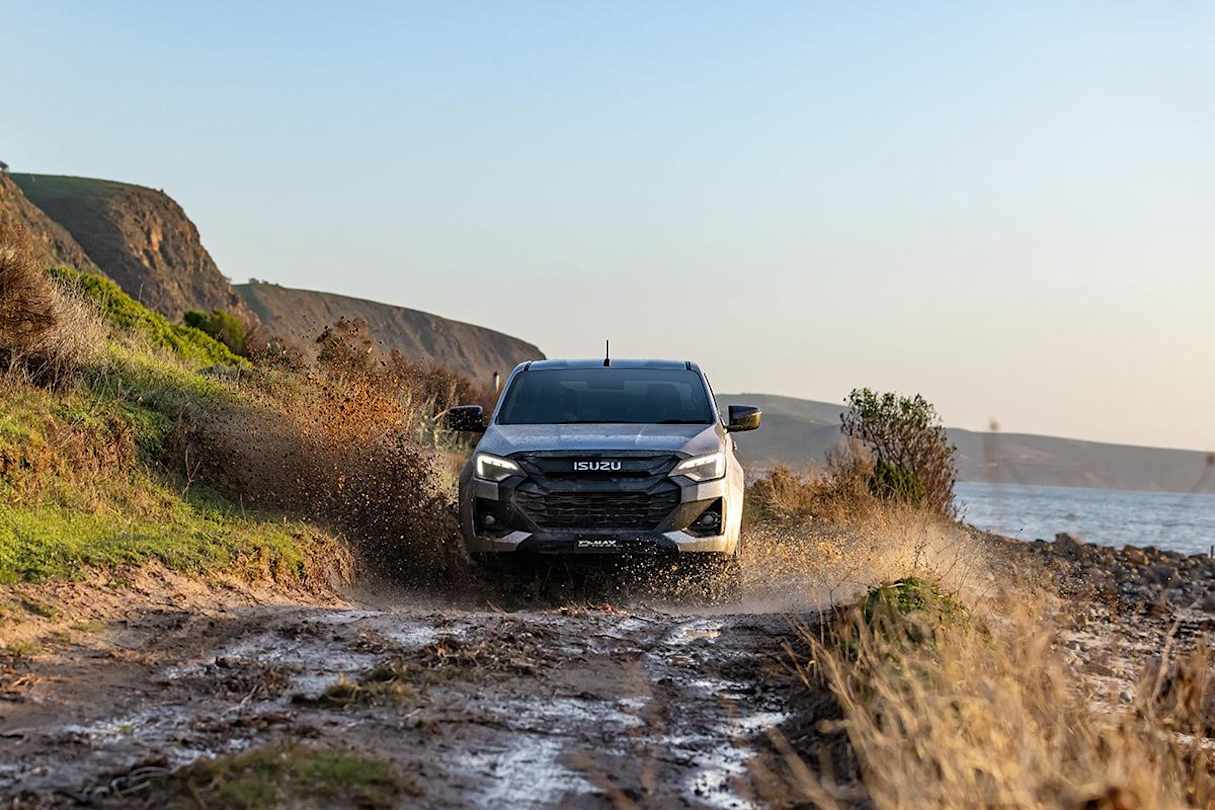




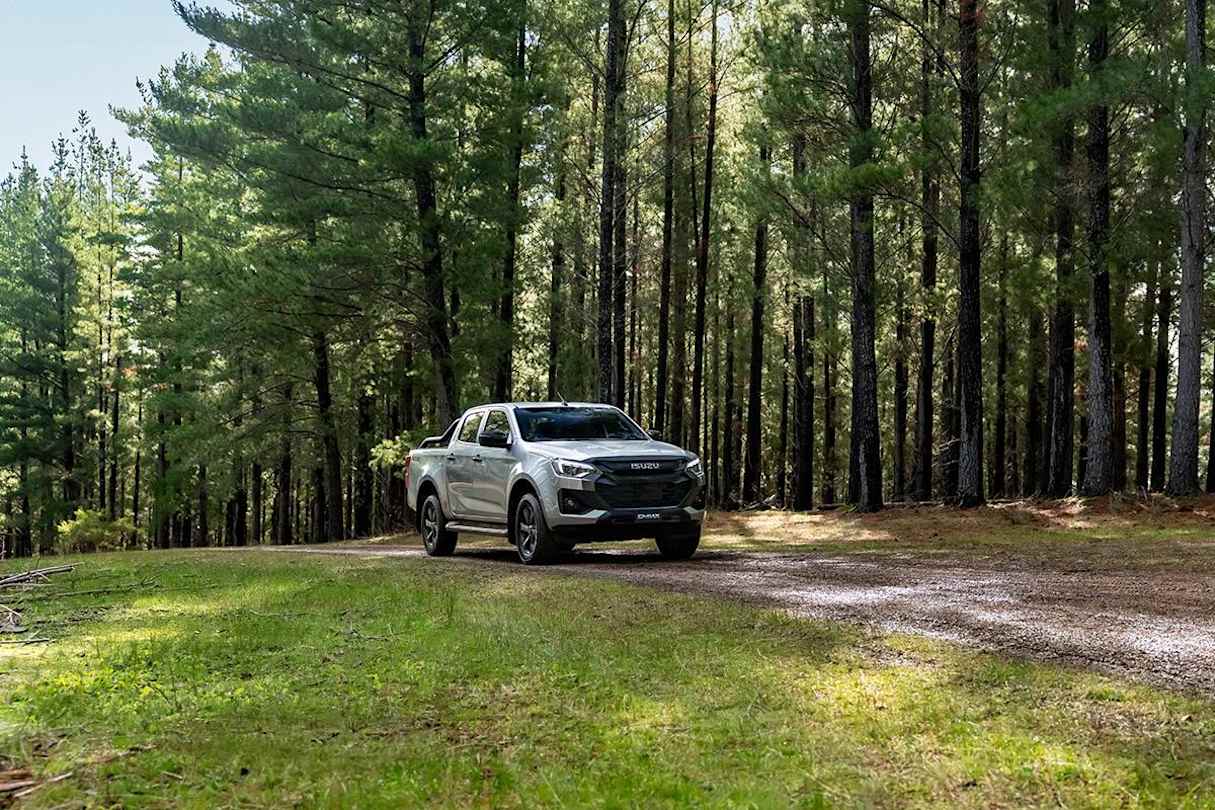
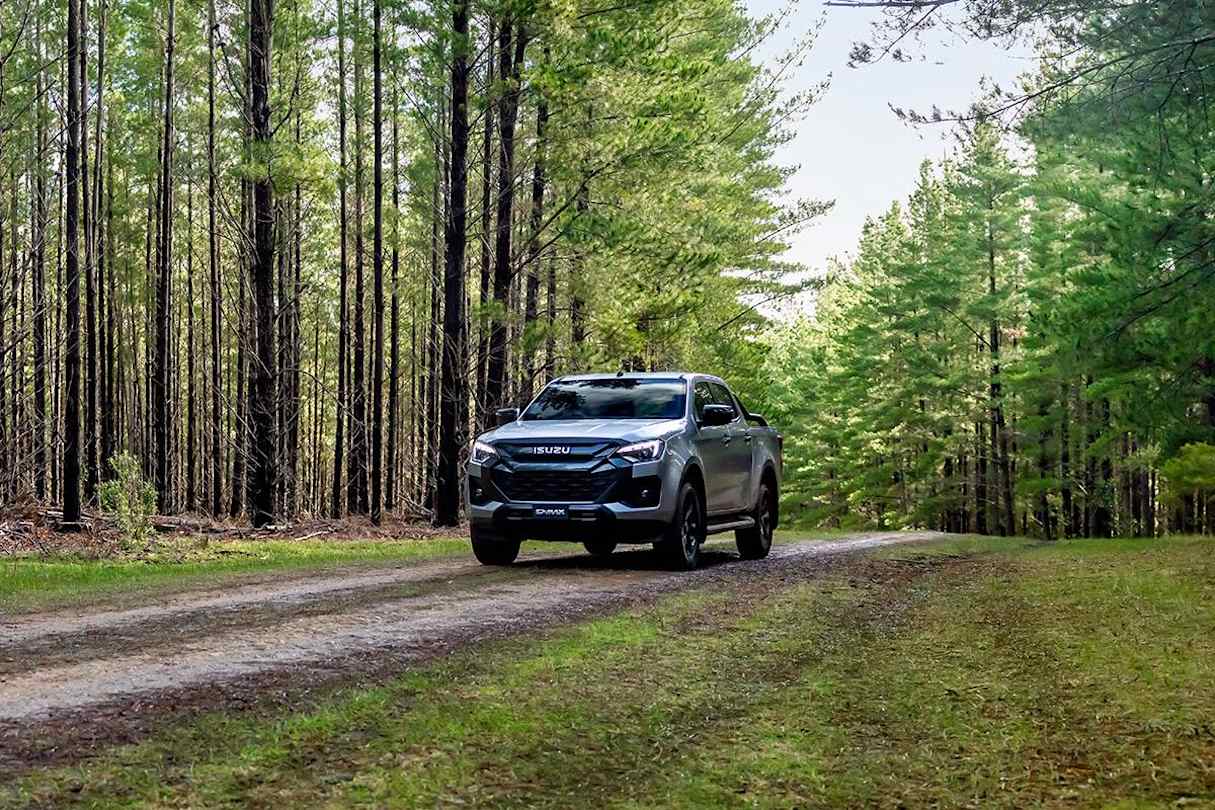
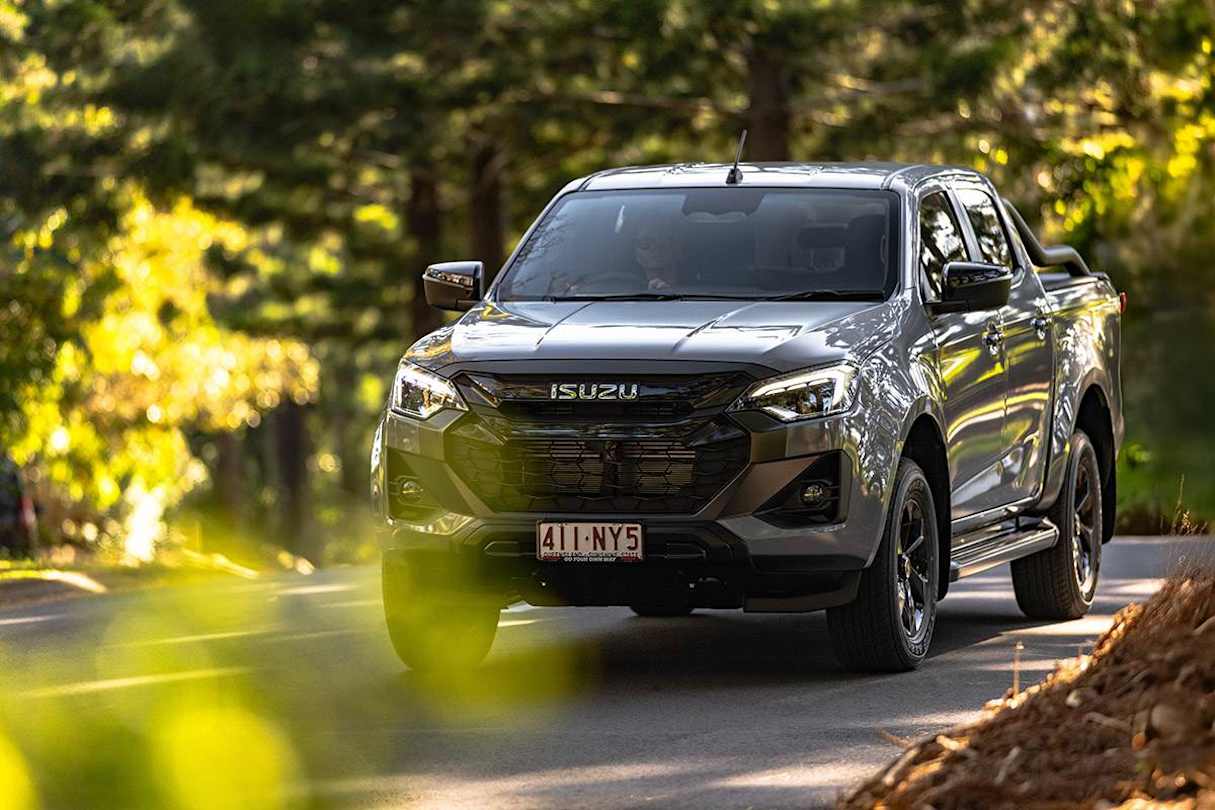
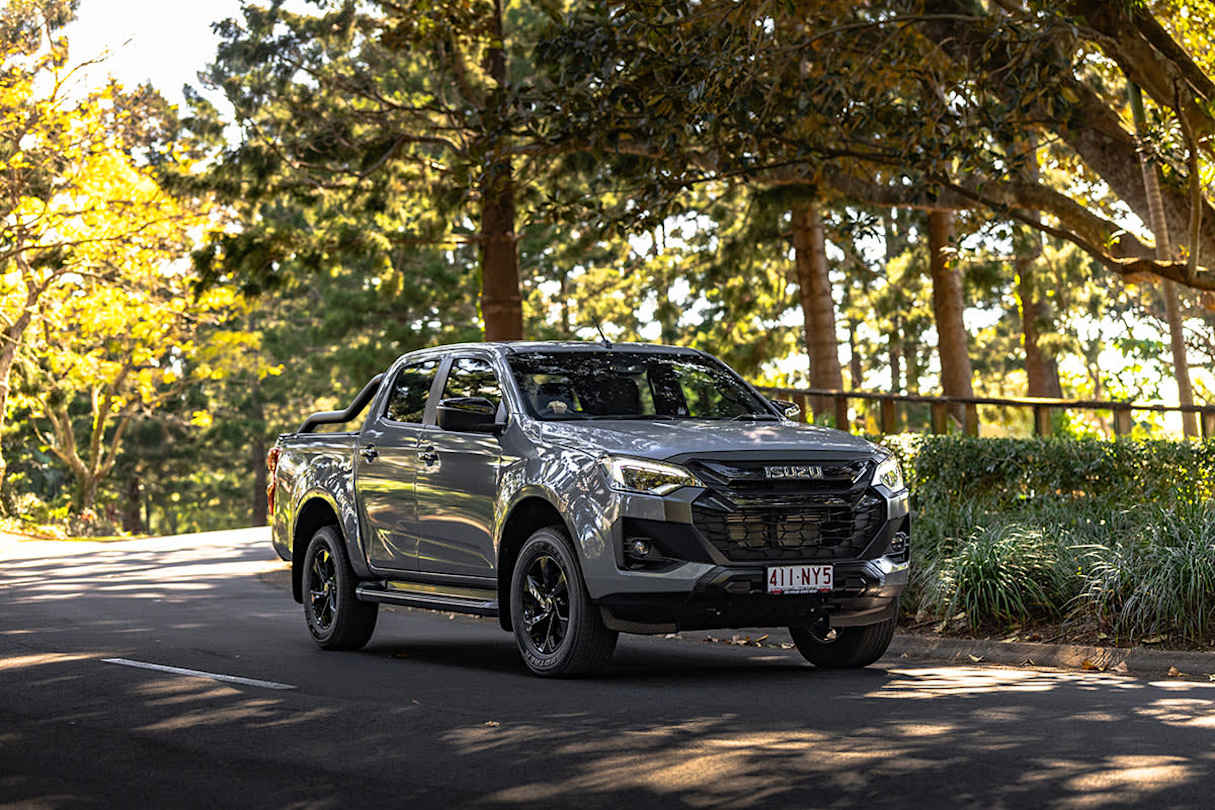




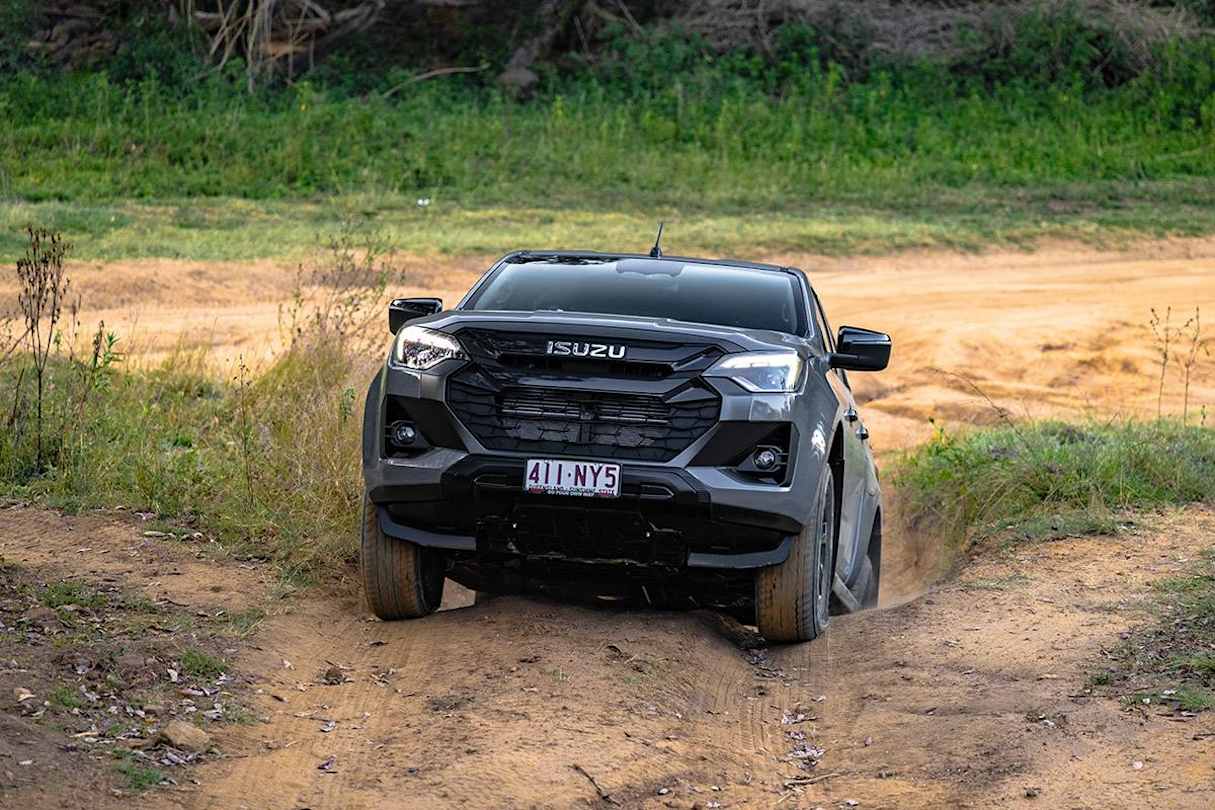
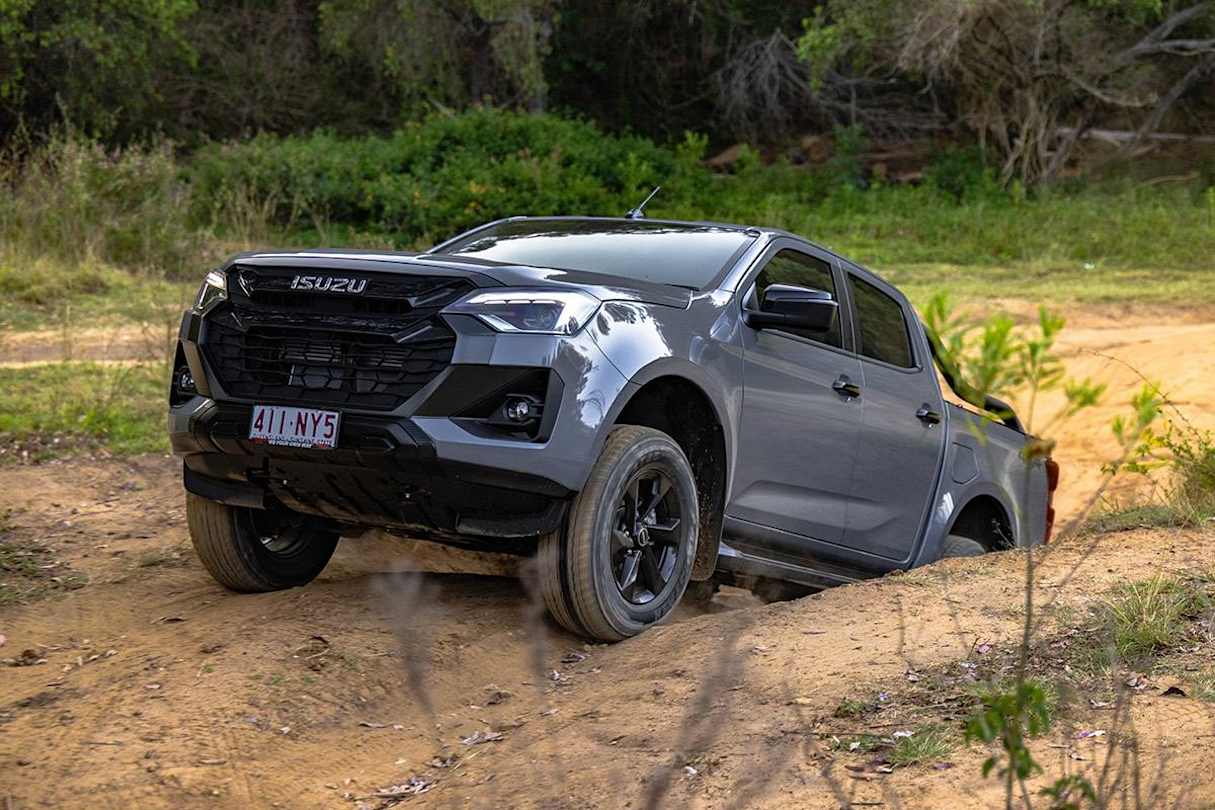
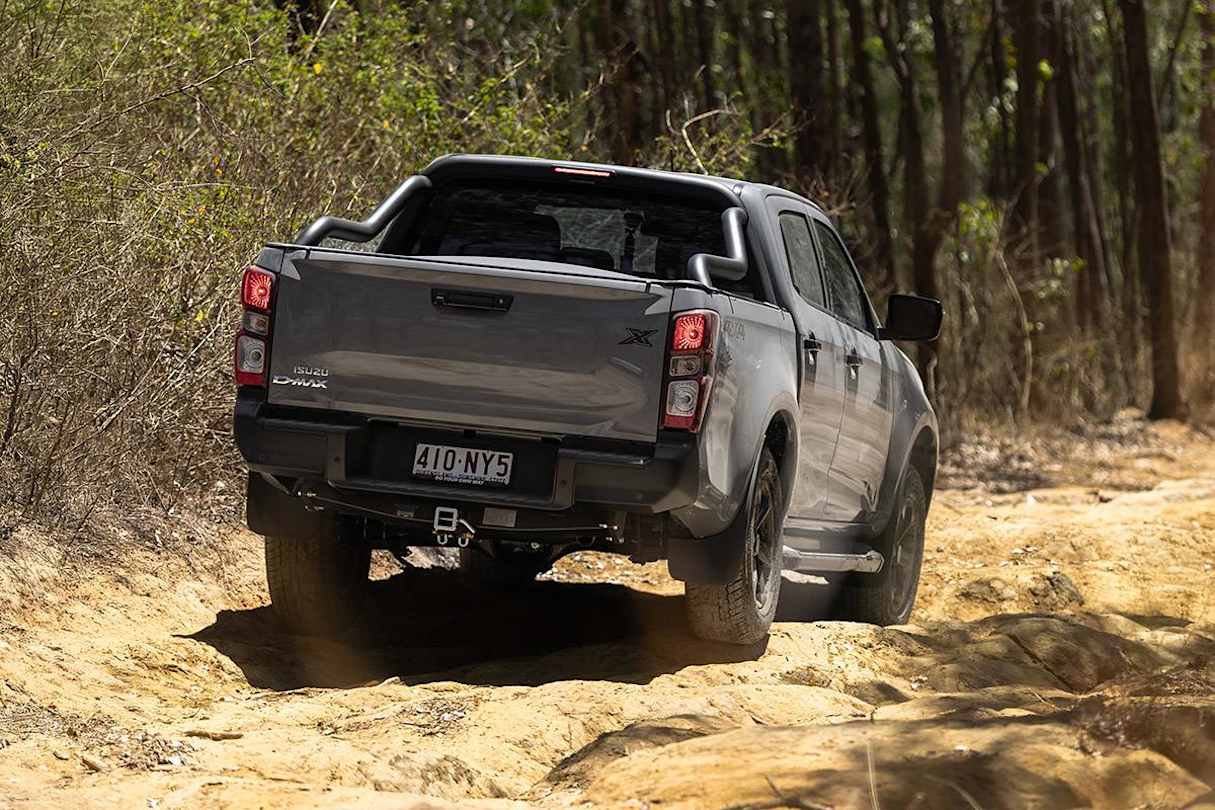
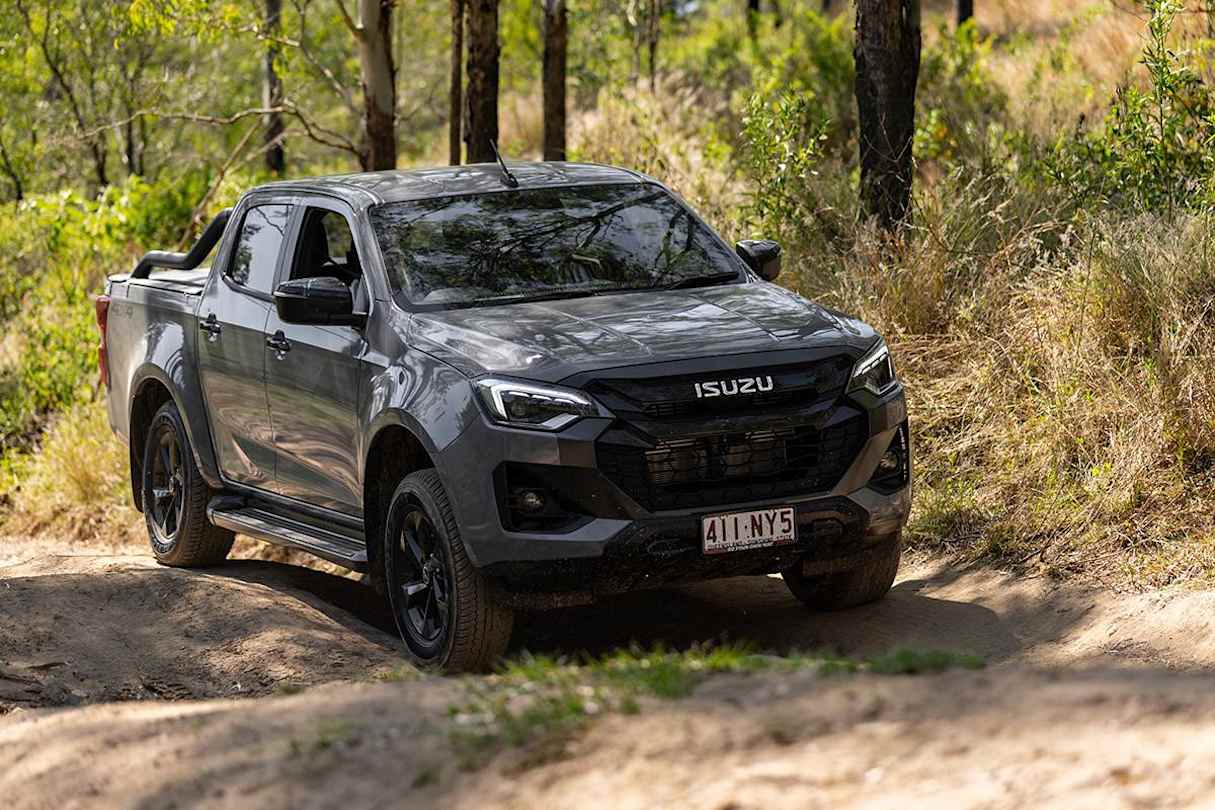




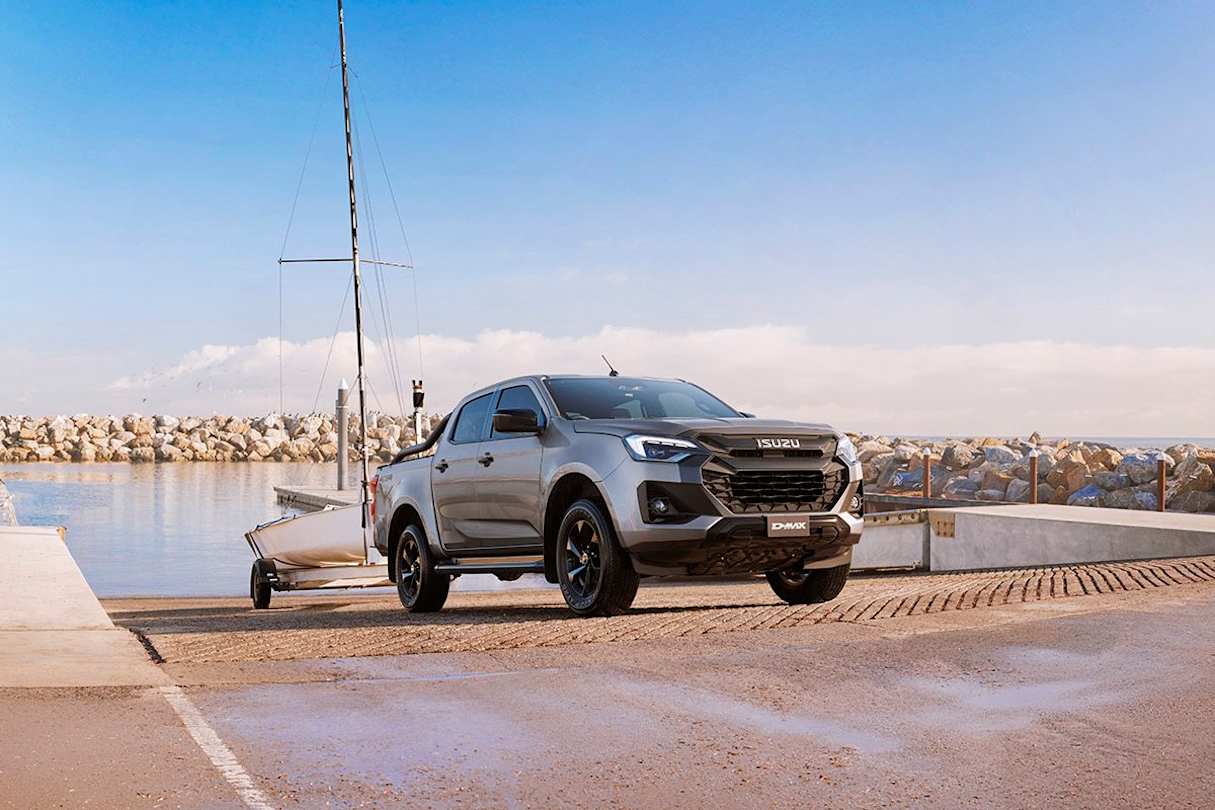
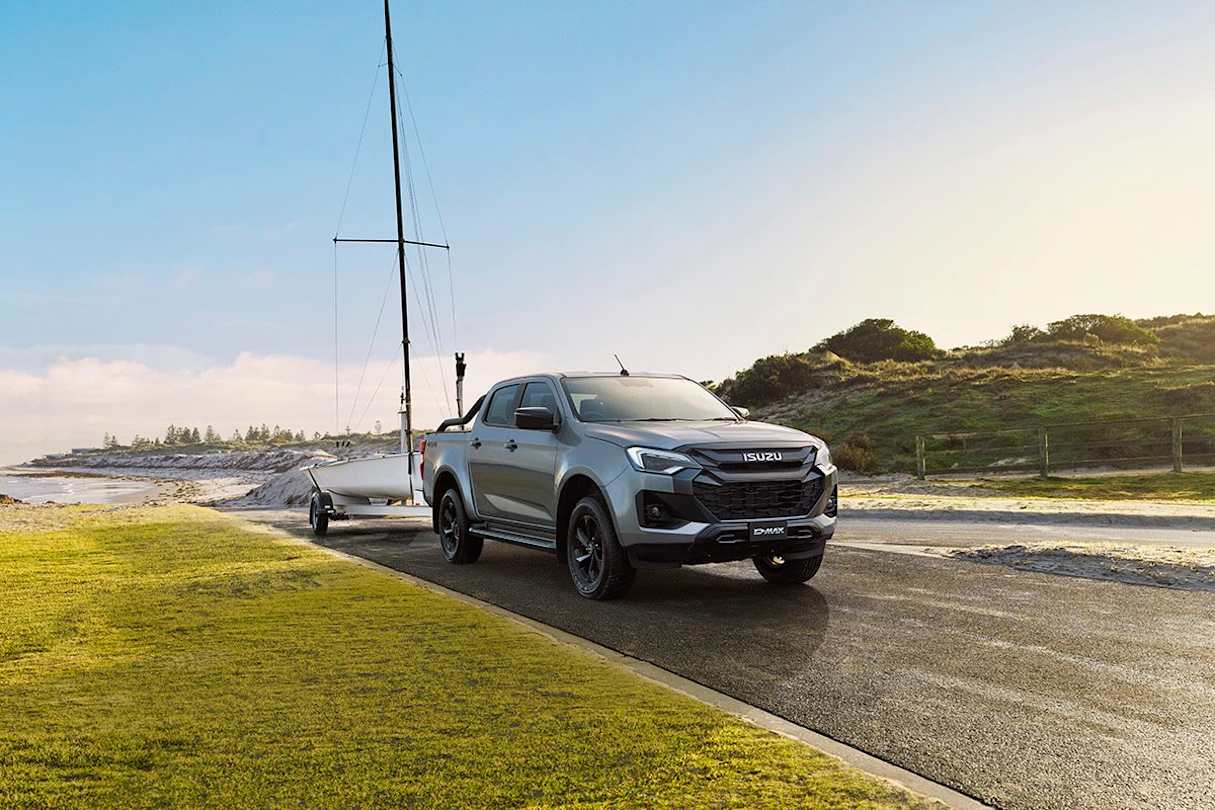
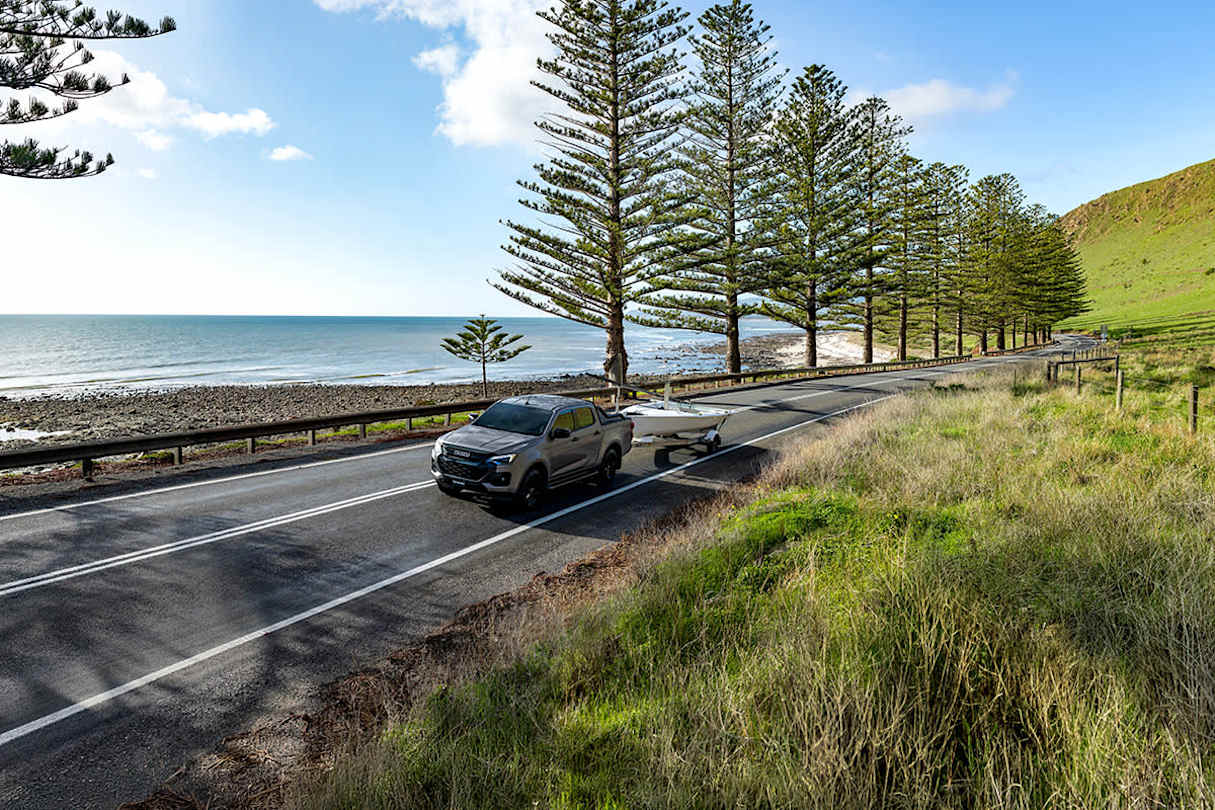
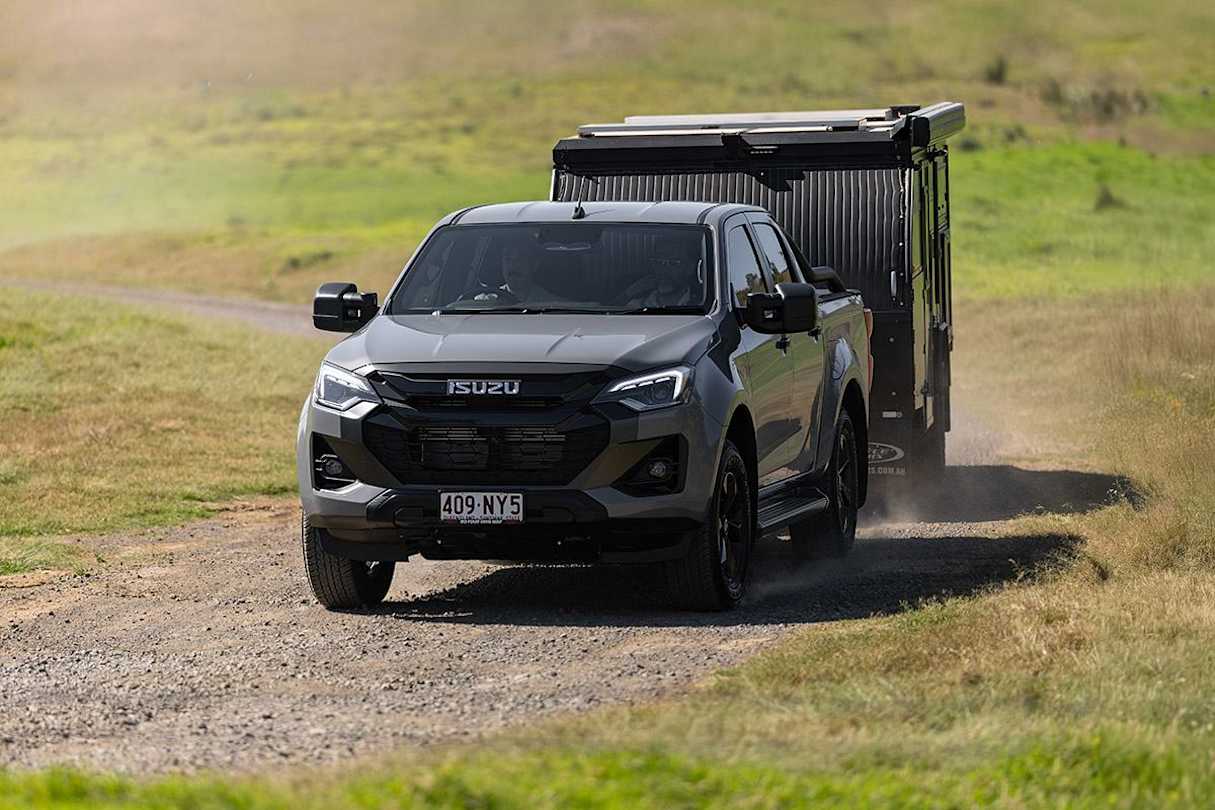




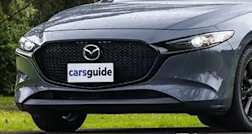


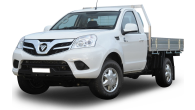




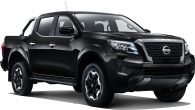

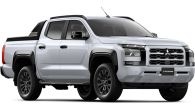
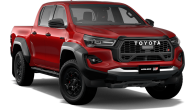
.jpg)
.jpg)
